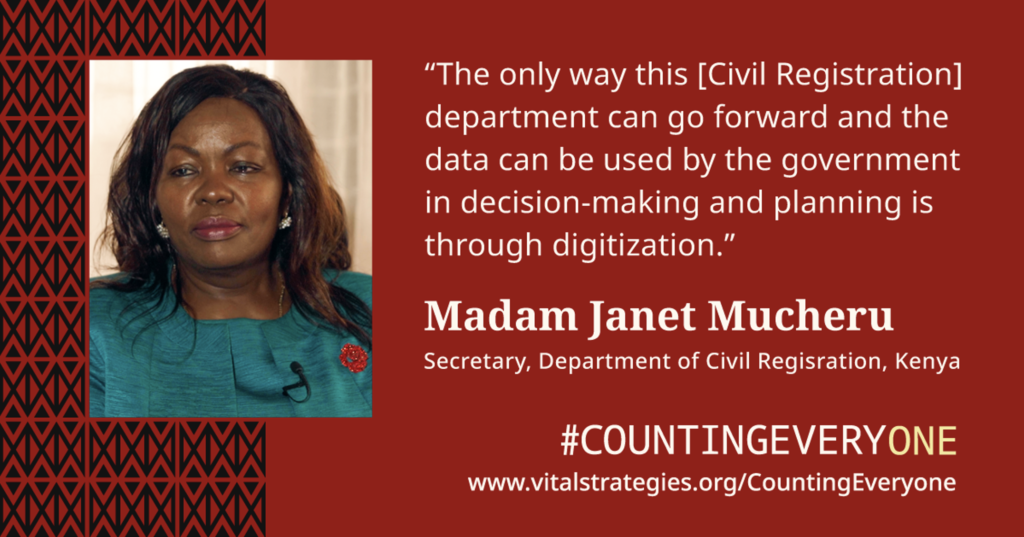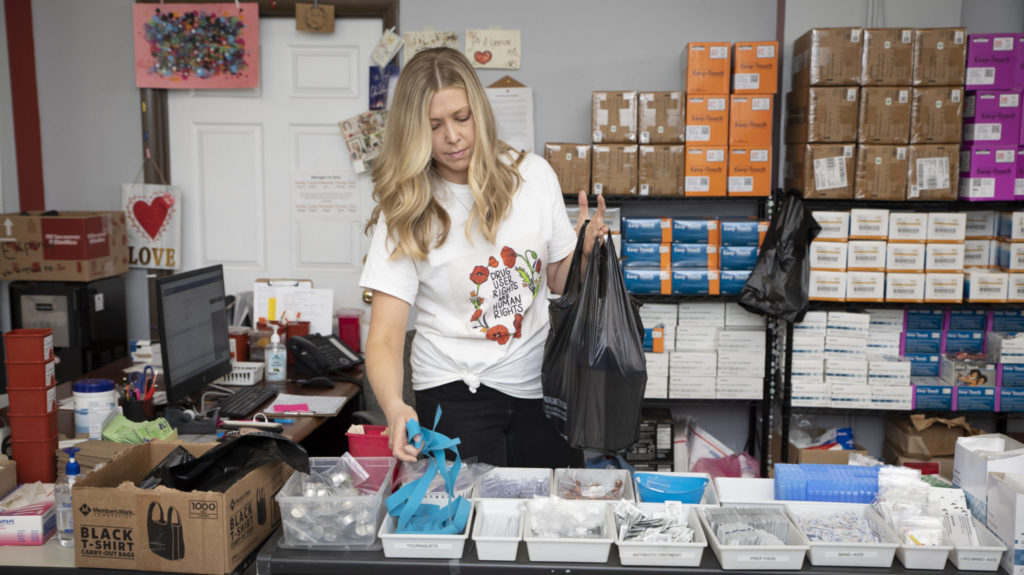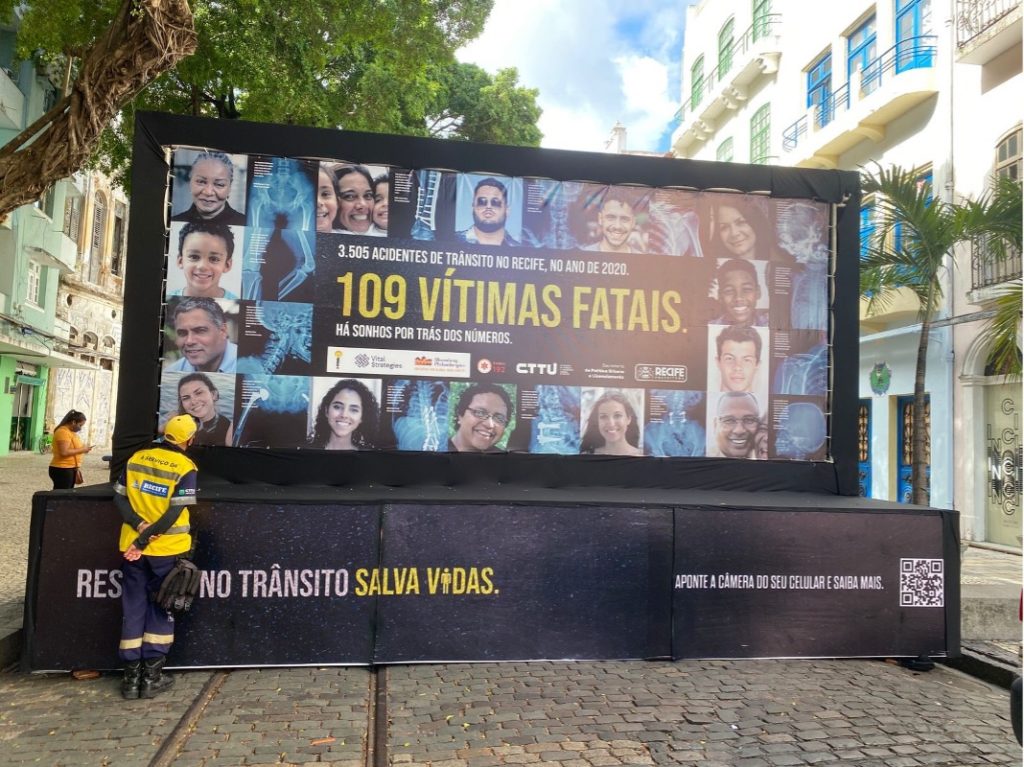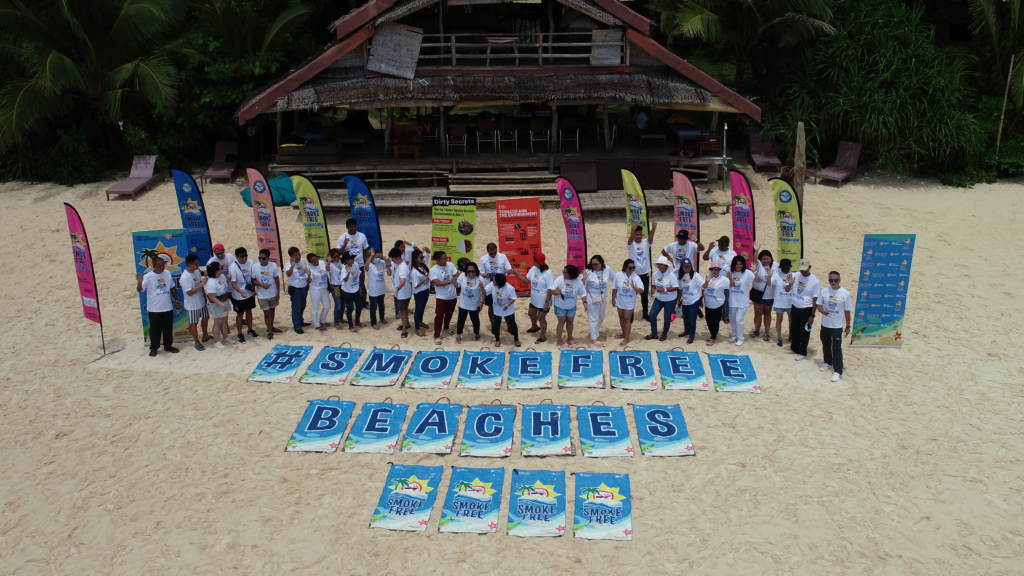Vital Stories featured more than 30 posts in 2022, highlighting the achievements of our programs throughout the year.
We’ve pulled together a summary of some of our most popular Vital Stories from 2022, starting with the most read, “Five Leaders in LGBTQIA+ Health You Should Know,” which was published during Pride Month and celebrated the work of five leaders whose work focuses on health equity and reducing the many health disparities the LGBTQIA+ community faces due to systemic inequality and barriers to health care.

Data for Health

#CountingEveryone Campaign Gains Traction in Kenya: When civil registration systems do not capture all the births and deaths within a country, everyone loses. First, the uncounted lose, as they often lack the official documentation to access education, health and other social services. But governments also lose. Without accurate data on its citizenry—where they are born and where and how they die—a country cannot accurately deploy public health resources where they are most needed. When the Kenya government rallied the political will to count everyone, they showed just how quickly progress could be made: within five years, birth registration jumped from 61% to over 82%, and death registration rates rose nearly 15 percentage points. Read how they did it here: #CountingEveryone Campaign Gains Traction in Kenya – Vital Strategies
Environmental Health

Using Low-Cost Sensors to Strengthen Air Quality Management: Air pollution continues to be a global challenge for the environment, health and economic development, and the burden is greatest in countries with rapid economic development and urbanization. For many city governments in countries with limited or no air quality regulation, the complexity and cost of understanding and controlling air pollution have been barriers to clean air. This blog shared an approach that relies on alternative technologies for real-time air quality monitoring, and links to guidance for using low-cost sensors based on applied research and field experience in India.
Food Policy/Alcohol

Consumers Beware: Harmful Industries Deploy Language to Mislead Buyers: By exploring the origins of terms such as “natural,” “responsible drinking” and “vaping,” this blog post exposes the language adopted by the ultra-processed food, alcohol and tobacco industries to influence behavior and consumption patterns for commercial benefit. The terminology deployed by these billion-dollar industries is designed to make harmful products sound tamer or to shift responsibility for risks associated with their products onto consumers, allowing corporations to promote products that drive chronic illness and worsen health inequities.
Overdose Prevention

Three of the most popular blog posts of 2022 focused on overdose prevention. During Black History Month in February, the Overdose Prevention Program highlighted the work of five Black harm reduction activists. Later that month, New Mexico—the largest state working in partnership with Vital Strategies’ Overdose Prevention Program—passed important overdose prevention legislation that expands legal access to harm reduction interventions, such as fentanyl test strips. And as overdose deaths in the U.S. rose to an all-time high, Vital Stories featured six toolkits to help end overdose.
Partnership for Healthy Cities

How 8 Cities Worked to Slow COVID Infections, Distribute Vaccines and Address Health Disparities: To combat the wide health disparities exacerbated by the COVID-19 pandemic, eight cities within Vital Strategies’ Partnership for Healthy Cities network received grants and technical support to promote vaccine equity. As a result of this initiative, which sent supplies to mass vaccination sites across several continents, nearly 3.5 million people were vaccinated. Other long-term benefits of the initiative included training for health care workers and investments to expand municipal disease surveillance capacity.
Road Safety

Cities Commit to Slowing Down and Safer Streets: Setting a 30 km/h (20 mph) speed limit where people walk, work, live and play is one of the most effective ways to promote road safety and prevent the nearly 1.3 million global traffic deaths every year. This blog shows how Vital Strategies is working to support governments to achieve the U.N.’s Second Decade of Action objective to cut road traffic deaths in half by 2030, emphasizing the need for lower speeds to both prevent the likelihood of a crash and the severity of the consequences when a crash does occur.
Tobacco Control

In keeping with the focus of 2022’s World No Tobacco Day—which emphasized not only the health but also the environmental implications of the global tobacco epidemic—Vital Strategies’ teams in China, Indonesia, Mexico, the Philippines, Türkiye and Viet Nam organized campaigns around the theme: “Poisoning Our Planet: Tobacco Exposed.” Cigarette butts are the world’s most common type of single use plastic pollution, leaking toxic chemicals and harming wildlife. And while tobacco companies claim that e-cigarettes will help deliver a more sustainable future, they are creating a new wave of environmental degradation and pollution, including plastic waste and waste generated from mining for the metals and minerals used in electronic cigarette batteries. Read more about how the youth of Indonesia are being hooked on e-cigarettes through social media.